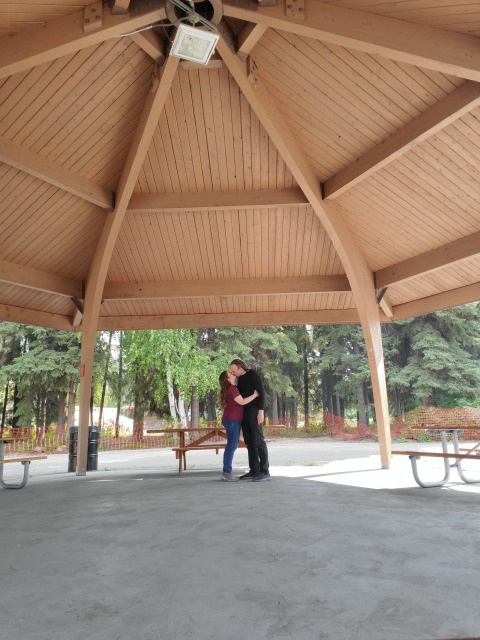A walk in the fire zone
Sep. 26th, 2025 10:47 pmThis was actually around a week and a half ago - a week ago last Tuesday, Sept. 16 or so - but I've been deep in the word mines and I'm just now writing it up. (Click to embiggen photos.)
We enjoy doing walks in the fall when the weather is nice, and we decided to walk out and explore something interesting. I don't remember if I wrote about it at the time, but we had a little wildfire scare at the end of June, when a lightning-sparked wildfire started a few miles from our house. It got an all-hands-on-deck suppression approach (because it's so close to town and adjacent to several subdivisions), and was extinguished after burning about 15 acres or so. We watched the water tankers dropping loads on the blaze from our house.
This fall, we decided to try to walk out and find the location and have a look at it. We tried it once and failed, but after looking at satellite maps we decided that we were headed in the right direction, just turned back too soon. It involves walking down an old road cut - utility access road? who knows - that mostly looked like this:

But occasionally more like this.

And we found the fire zone! Once we were there, it was unmistakable. The rest of these pictures are under a cut because some might find them distressing, although I mostly found it eerie and fascinating; it was nothing like any place I've ever been before. (All burned trees, no vehicles or structures.)
( Photos under the cut )
We enjoy doing walks in the fall when the weather is nice, and we decided to walk out and explore something interesting. I don't remember if I wrote about it at the time, but we had a little wildfire scare at the end of June, when a lightning-sparked wildfire started a few miles from our house. It got an all-hands-on-deck suppression approach (because it's so close to town and adjacent to several subdivisions), and was extinguished after burning about 15 acres or so. We watched the water tankers dropping loads on the blaze from our house.
This fall, we decided to try to walk out and find the location and have a look at it. We tried it once and failed, but after looking at satellite maps we decided that we were headed in the right direction, just turned back too soon. It involves walking down an old road cut - utility access road? who knows - that mostly looked like this:

But occasionally more like this.

And we found the fire zone! Once we were there, it was unmistakable. The rest of these pictures are under a cut because some might find them distressing, although I mostly found it eerie and fascinating; it was nothing like any place I've ever been before. (All burned trees, no vehicles or structures.)
( Photos under the cut )


























